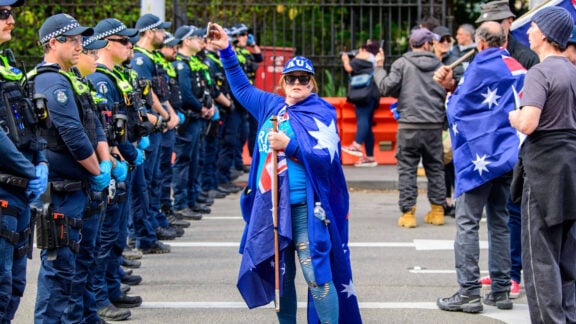Despite new APRA guidelines on HECS debt, young Greek Australians remain skeptical about their homeownership prospects, citing high property prices and financial pressures.
The Australian Prudential Regulation Authority (APRA) has advised banks to amend the way they view HECS debt when considering young Australians for a mortgage.
Essentially, they are now noting that HECS is paid pre-tax, and banks have historically been assessing serviceability based on post-tax income. But how are young Greek Australians feeling about the change?
23-year-old Master’s student Georgia Anagnostakos has just started a 10-week unpaid placement in dietetics and has a HECS debt sitting at around $60,000, not including her master’s.

“I’ve talked about buying a house with my partner Kane, but we both have a HECS debt,” Georgia tells Neos Kosmos.
“There’s no way we could afford something in Melbourne without being in the sticks, but with our jobs, we want to be closer to the city.”
When I explain the clarifications introduced by Treasurer Jim Chalmers, Georgia is skeptical.
“I feel like they say that, but it’s not actually going to apply. At the end of the day, regardless of whether you have a HECS debt or not, it’s still going to be very hard to own a home.”
Georgia’s older sister Anastasia has just paid off her HECS debt at age 37 (which was sitting at $75K after two bachelor’s degrees and one master’s) and is now ready to buy a home — but it hasn’t been easy, “I’ve salary sacrificed… I chopped up my credit cards, I’ve refinanced my life.”

Anastasia moved to Athens for two years in her twenties, during which her HECS repayments were paused. She says she didn’t start properly chipping away at the debt until she moved back to Australia.
“My goal has been to build up money for a deposit, regardless of my HECS. I knew that would always pay itself off… I don’t think HECS debt should be treated like credit card debt, because it’s basically compulsory. We all need a degree these days to work.”
When I asked recent design graduate Kathryn Polendakis whether she’d started paying her HECS debt yet, she laughed: “Absolutely not.”
“I have no idea about my HECS debt at all; I just know I have to pay it eventually.”
She is planning to buy a home with her partner Ryan down the track and is confident about their prospects because they’ll be doing it together, and he earns well.
At 26, he has already paid off his HECS debt following advice from NAB. Kathryn says they told him that losing that debt will increase his borrowing power.
The new scheme was explained to Kathryn, but she doesn’t trust it.
“Debt is debt. I see it as very black and white. It’s better to have it paid off before trying to buy a house.”
“With money, everything is cutthroat. Life is expensive.”

22-year-old Tasso is studying to become a teacher and describes living at home with his parents as a “safety net.”
“Owning a home is always at the top of my head.”
While Tasso is looking forward to the independence he says, “I can’t say that it’s eating away at me”.
“I need to pay for upkeep of my car, I have to study, there are so many other things to care about… I don’t know when, or how I will own a home, but I’m not pessimistic about it.”
Tasso says he’s lucky to have been gifted a second-hand car by his parents for his birthday but isn’t expecting anything more.
Anastasia notes that the Greek community loves to “help out” — her friends received monetary support from their parents, which she believes is a “double-edged sword,” because “knowing you’ve always got something to fall back on translates to other areas of life.”
“My sisters and I never received any help, and neither did our parents. We’re all very capable.”
For young Greek Australians like Georgia, Anastasia, Kathryn, and Tasso, policy tweaks mean little — homeownership is shaped more by financial realities and personal circumstances.









